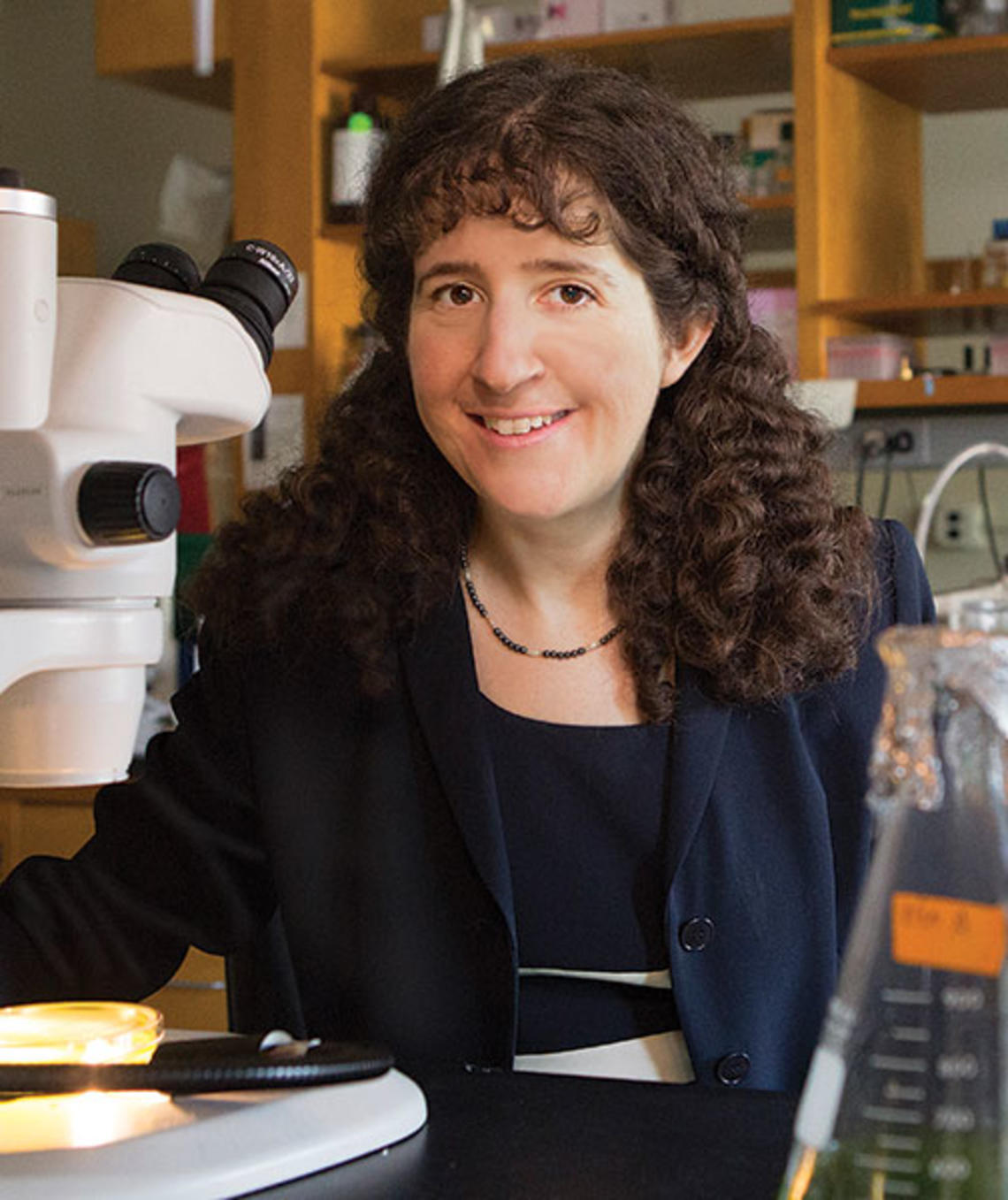
As a Princeton freshman, Laura Landweber ’89 began the first of several undergraduate research projects and immediately knew she had found her path. “I really experienced that art of being absolutely wrapped up in what you do,” says Landweber, a member of the molecular biology faculty for the last 21 years.
PAW Tracks is also available on iTunes — click here to subscribe
TRANSCRIPT:
Think back to your first year at Princeton. Did you know what you wanted to do in your career? Laura Landweber, Class of 1989, had a pretty good idea. Born and raised near campus, she had taken classes at the University during high school, in both math and biology. She came to college anxious to begin working in a lab.
Landweber: I know I was kind of unusual in having my mind set, even around freshman year, about what I wanted to do. I pretty much knew I wanted to do science and had exposure to lab research in high school summer programs, working in a lab both before my senior year in high school and after senior year in high school. I worked in Peter Kahn’s lab at Rutgers University and had a taste of what it was like to live in the lab, so to speak. But as an undergraduate I really had that opportunity for immersion because my dorm was just meters away, or maybe sometimes across campus, but not too far from the lab. And so I really experienced that art of being absolutely wrapped up in what you do and loving lab science.
I think I really jump-started my career in biology as a freshman by both getting into a research lab early and taking upperclassmen classes early. I was encouraged by Beth Luna, who was an assistant professor at the time, to consider taking this advanced course in cell biology, even though I was a freshman. It was called Biology 423. It had a four in front of it, and I was really psyched about taking such an advanced class. It meant I worked really hard, and I loved it, and I earned my B+. Because the other students in the class had more background than I did. But I actually always enjoyed being just a little bit over my head. That’s just kind of the nature of being a scientist: There’s always stuff out there that you don’t know, and you like the subject because you don’t know everything about it.
When I figured out that I wanted to continue on in biology I was also excited that at that time Princeton was recruiting a molecular evolutionist, a true molecular evolutionary biologist, named Marty Kreitman. And not many kids, at the age of nineteen or whatever I was, hear about new faculty recruits. But somehow I got wind of this and Marty’s focus was strictly molecular evolution. He was going to set up a lab to study evolutionary biology at the level of DNA sequences. And for aficionados or even just people who hear only casually about DNA sequences and the use of DNA molecules in forensics, this was really just at the beginning of that whole era. In fact, it was before the technique of PCR had been invented. And PCR — polymerase chain reaction — is this tool that allows you to recover DNA from very nearly anything, from very nearly anywhere on our planet.
PCR was just coming on the market. And I remember Shirley Tilghman bought the first PCR machine at the University, but that wasn’t until I was a Junior. So, before that we had to make one. And so my adviser Marty and I, together with some other folks in engineering, essentially designed and constructed, from scratch, from tubes that looked like a giant tarantula — with water baths and tubes going everywhere — the first PCR machine on campus.
So, this era of PCR really changed molecular biology and changed evolutionary biology. And that was all happening in the mid to late 1980s when I was just joining labs and just becoming an active player in this field. So my undergraduate senior thesis was on tools that were important in using this technique of PCR to recover DNA, and then when you have the DNA to be able to sequence it. This is something that people do so routinely now, and I can look back and remember when that was one of the key chapters in my senior undergraduate thesis. So I was really privileged to be involved in the transformative days of a field.
Landweber pursued her Ph.D. at Harvard, and when it came time to begin looking for a faculty position, she learned that Kreitman, her thesis adviser, was leaving Princeton for a job at the University of Chicago. Princeton was in the market for a molecular biologist.
Landweber: It was the only academic job I applied for because I had just gotten my Ph.D. and really just started a postdoc with Jack Szostak, who was also at Harvard in the Society of Fellows. And so literally just a couple of months into beginning that postdoc, I interviewed for the job at Princeton. It was in a different department than I’d been a student in, because I was a student in molecular biology and this was a job in ecology and evolutionary biology. But I’d taken one course with both Peter Grant and Marty Kreitman in EEB, on evolutionary biology, and that was, indeed, the subject I really loved. So I was really lucky that I was offered so young — I think I was 25 then — the chance to come back to the University as faculty.
I’ve been at the University as faculty for 21 years and now I have plans in 2016 to move my lab to Columbia University, which has offered us a terrific opportunity to expand.
Thirty years after she began her freshman year at Princeton, Landweber’s love of the lab endures.
Landweber: You know the daily life in a lab is sometimes a lot of repetition, but sometimes you realize you’re on the brink of something really important. And then you want to figure out what happens next. So there are some times, some days, when you just don’t even want to go to sleep. I mean, you do of course, in the end, but you really want to do the next experiment. And then you get the results back from that next experiment, and if it’s going well, or reveals something, then you just want to keep going.
So there’s always these little pauses in the nature of doing experiments in molecular biology where you run a gel, or you grow some cells — where there’s some down time. That’s also a good place to go get a good night’s sleep, when your cells are growing. But there’s always the, “What next?” And that is what would drive me.
Paw in print

October 2024
Exit interviews with alumni retiring from Congress; the Supreme Court’s seismic shift; higher education on the ballot
